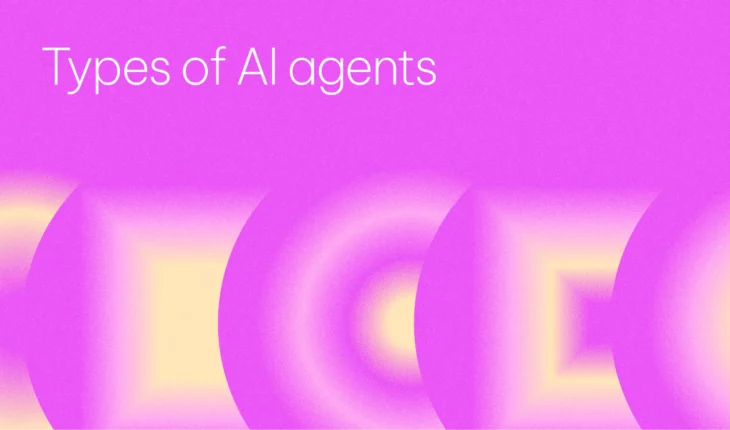Table of Contents

7 Examples of AI Agents Transforming Enterprise Operations
AI agents represent the next evolution in enterprise automation – systems that can execute tasks, make decisions, and adapt to new situations without constant human supervision. Unlike simple AI tools, agents operate with a degree of independence to achieve specific goals.
From optimizing staffing levels and inventory management to delivering personalized customer experiences and predicting customer behavior, AI agents are transforming how enterprises operate across industries.
Here are 7 examples of AI agents in action across various industries, demonstrating their real-world applications and benefits.
1. Customer contact triage AI agents
Customer contact triage agents revolutionize front-line customer interactions by autonomously evaluating and routing inquiries in real-time.
Using natural language processing (NLP) and sentiment analysis, these agents independently assess both the content of voice queries and customers’ emotional states. When a customer calls with an urgent issue, the agent detects stress markers in their voice and immediately prioritizes their request.
Publisher Wiley implemented a customer contact triage agent to handle customer service spikes, draft personalized responses to support reps, resolve customer issues, and track service trends, which has led to a 40% increase in improved case resolutions.
Nearly 80% of businesses have experienced a rise in customers utilizing self-service support channels, including AI-driven triage systems. This autonomous decision-making dramatically reduces wait times while ensuring customers reach the right specialist on their first contact, ultimately improving both operational efficiency and customer satisfaction.
2. Fraud analyst AI agents
Fraud analyst agents continuously patrol financial systems, autonomously identifying suspicious patterns that might indicate fraudulent activity. What distinguishes these agents is their ability to independently investigate potential fraud without human direction.
They scan billions of transactions in real time, flagging unusual spending patterns, geographic anomalies, or behavior inconsistent with a customer’s history. When suspicious activity is detected, these agents can independently initiate security protocols such as temporarily freezing accounts or triggering stepped-up authentication requirements.
A recent study found that a substantial 73% of organizations are using AI fraud detection, using machine learning algorithms to analyze behaviors and detect anomalies indicative of fraudulent activities.
For new applications, these agents independently assess risk levels by analyzing hundreds of variables simultaneously, making approval decisions based on sophisticated risk models. By continuously learning from new fraud patterns, they can evolve their detection strategies independently, staying ahead of emerging threats while reducing false positives.
3. Healthcare assistant AI agents
Healthcare assistant AI agents transform patient care through autonomous data management and proactive decision support. These systems independently gather, organize, and summarize medical histories from disparate sources, creating comprehensive patient profiles in real-time.
When healthcare providers need specific information, they can simply ask in natural language—”What medications is this patient taking?”—and the agent retrieves precisely relevant details. What makes these true agents is their ability to independently identify potential issues rather than merely responding to queries.
They continuously monitor patient data, alerting providers to concerning trends or contradictions in treatment plans without being specifically directed to do so. When they detect problems requiring specialist attention, they can autonomously schedule appropriate appointments or recommend specific interventions based on clinical guidelines.
With the global AI healthcare market projected to expand from approximately $20.9 billion in 2022 to $148.4 billion by 2029, reflecting a compound annual growth rate (CAGR) of 38.5% from 2024 to 2030, healthcare AI agents are set to become indispensable tools. Their ability to reduce the administrative burden allows healthcare professionals to focus more on direct patient care.
4. Inventory manager AI agents
Inventory management agents transform supply chain operations through autonomous monitoring and decision-making. These agents continuously analyze stock levels across multiple locations, independently triggering restock orders when inventory approaches predetermined thresholds.
Unlike basic inventory systems, advanced inventory systems make data-driven decisions by synthesizing historical sales data, seasonal trends, and real-time consumer behavior. Pampeano, a leather goods company, implemented an AI inventory management system that analyzes sales data and market trends to optimize stock levels, resulting in a 24% increase in revenue.
When these agents detect unexpected demand patterns, they can independently adjust order quantities, reallocate stock between locations, or modify production schedules to prevent shortages. By making independent decisions about inventory management, these agents minimize both stockouts and excessive inventory carrying costs while requiring minimal human oversight.
5. Marketing management AI agents
Marketing management agents transform campaign execution through the autonomous orchestration of complex marketing activities.
Given a simple directive like “create a 20% discount for orders over $200,” these agents independently implement a coordinated sequence of actions across multiple channels.
They autonomously craft email promotions with appropriate messaging, schedule social media announcements, adjust paid advertising budgets within established parameters, and update website elements—all without requiring step-by-step human direction.
What makes these true agents is their capacity to make independent decisions about timing, channel selection, and content based on their analysis of previous campaign performance and current customer behavior.
If metrics indicate underperformance in certain channels, they can reallocate resources in real-time to maximize effectiveness. This autonomous execution dramatically reduces the time between marketing strategy and implementation while ensuring consistent messaging across all customer touchpoints, allowing marketing teams to focus on creative strategy rather than tactical execution.
NPD Powered, a recognized provider in the pest control and turf sectors, leverages marketing management AI agents to seamlessly manage information flow while strengthening customer service, enabling rapid growth without losing control. Agents can autonomously conduct detailed research, create high-quality blog posts, and manage social media content, handling the entire content lifecycle from research to publication.
6. Pricing strategist AI agents
Pricing strategist agents transform retail economics through autonomous price optimization. These sophisticated systems independently analyze vast datasets—including competitor pricing, historical sales, inventory levels, and seasonal factors—to determine optimal price points that maximize both sales volume and profit margins.
When the inventory of perishable goods is approaching expiration, these agents can independently implement graduated discounting strategies to reduce waste. They continuously monitor sales velocity and autonomously adjust prices in real time to respond to changing market conditions without requiring human approval for each change.
What distinguishes these from simple pricing tools is their ability to make complex, interconnected decisions—they might autonomously lower prices on complementary items when primary products are selling well to increase overall basket size.
They can also independently analyze in-store customer movement patterns and recommend optimal placement of high-margin products in high-traffic areas, effectively functioning as strategic retail partners rather than mere calculation tools.
7. Sales assistant AI agents
Sales assistant agents transform prospecting and customer engagement through autonomous relationship management.
These sophisticated systems independently identify potential clients by analyzing digital footprints across the internet, evaluating fit against ideal customer profiles, and autonomously crafting personalized outreach messages tailored to each prospect’s specific needs and interests.
During sales calls, they function as virtual partners by analyzing conversation patterns in real-time, identifying buying signals, and flagging critical moments that might otherwise be missed. What makes these true agents is their ability to independently recognize objections—whether about pricing, competitor offerings, or implementation concerns—and immediately suggest effective counterpoints based on successful past interactions.
They can autonomously follow up with prospects at optimal intervals with relevant content based on previous conversations.
Media.Monks, a digital marketing and advertising company, uses a sales assistant AI agent to predict the likelihood of conversions and identify at-risk pipelines, optimizing sales performance and improving its win rate by 14% without significant operational changes.
By independently managing routine aspects of the sales process while providing strategic guidance during critical interactions, these agents enable sales professionals to be more responsive to customer needs while managing significantly more opportunities simultaneously.

Pick the AI agent that advances your goals.
AI agents are powering sophisticated autonomous systems across diverse industries. These intelligent agents independently analyze complex data, make decisions, and execute multi-step actions with minimal human intervention.
From healthcare assistance that proactively manages patient care to inventory systems that autonomously optimize supply chains, these agents deliver tangible operational benefits by handling tasks that would require substantial human time and effort.
While AI agents continue to advance in capability and autonomy, the most effective implementations still operate within carefully designed parameters. Human expertise remains essential for setting strategic direction, establishing appropriate guardrails, and providing the contextual understanding that makes these systems truly valuable.


